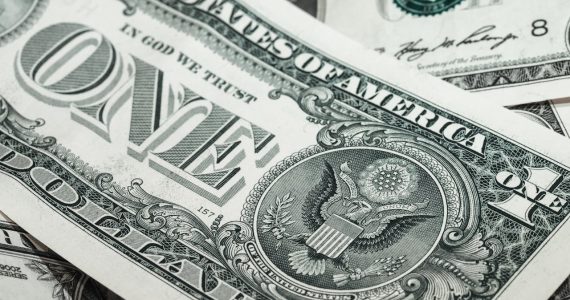People often think that saving money is a difficult task, and only those with a financial background can excel at it. While this notion has been repeatedly proved wrong by money-savvy individuals, there are still people who struggle.
All things considered, we have two major components to saving money – planning meticulously and working hard to earn more.
If you are unable to see the desired results for your hard-earned cash, keep reading to find out about ways that can prove to be beneficial for a long time:
Earn Yields on Your Savings

geralt/Pixabay: Get yourself a high return savings account
Ensure that the money put aside is in a high-yield savings account, or if you don’t need constant access to the savings, consider investing in a certificate of deposit (CD), giving high returns. Be mindful of the fact that once the CD starts, one cannot withdraw money, and in case you want to, a penalty charge is levied.
Diversify Your Portfolio
Do not put all your eggs in one basket; if anything, history has taught us that even the safest institutions can collapse. It is good sense to invest your savings in a variety of options to cushion the loss (if any). Diversification in a portfolio helps to set off a loss with another investment’s profit, shielding your savings overall.
Explore All Possibilities
Everyone is aware of traditional investments such as stocks, bonds, mutual funds, or real estate. Still, other ways can be explored.

Global_Intergold / Pixabay : All kind of saving is good saving!
Commodities such as gold, cattle, and shares of boats can be bought and are good options to consider.
Do Not Get Deceived
Even if you are frugal or have mastered the art of saving money by buying cheap or living only on necessities, it is easy to go astray when there is an item on sale. Yes, the item may be inexpensive, but that does not mean that it will be a valuable addition in your life.
Here’s a tip: If you see an item’s price marked down from $50 to $25, instead of spending that cash, put $25 in savings.
Do Not Hoard
People tend to stash away things that they think are worthless or will be used in the future, and then those unlucky objects never see the light of day.
Go through your storage and free up some space by selling anything that isn’t valuable to you anymore.
Utilize Your Credit Card
 flyerwerk /Pixabay: Make use of your credit cards at every opportunity
flyerwerk /Pixabay: Make use of your credit cards at every opportunity
This tip may seem like an odd one because a credit card is a type of loan. But, if one uses it wisely, a credit card can bring many benefits and help save money. Ensure that you have a credit card that rewards with cashback every time an amount is spent.
After paying off the entire due balance at the month’s end, you will get a cashback, so make sure to withdraw and deposit it in the savings account.
Some companies also offer travel miles and other perks.
Save Automatically
 Amnaj Khetsamtip/Shutterstock: Keep yourself focused in saving money
Amnaj Khetsamtip/Shutterstock: Keep yourself focused in saving money
A discipline is needed to save money at regular intervals. Thankfully, after the income is credited in your bank account, you can automate a part of it to the savings funds or other investments. This way, only the money left after the savings will be spent.
Pick the Right IRA
If you are self-employed, you do not have to use a traditional Individual Retirement Account (IRA) account as there is a possibility that by the time you retire, the funds may not have grown to their full potential.
Instead, use a Simplified Employee Pension (SEP), and contribute about 25% of your earnings.
Saving money is not rocket science, exactly—it just requires a willingness on our part. The next time you get a raise, instead of spending more, save more by reading our practical tips.




